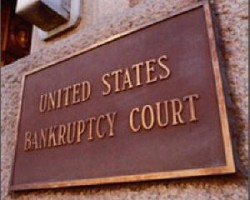
Pepper Hamilton LLP-
An individual debtor in a chapter 7 bankruptcy brought an adversary proceeding seeking to recover from a mortgagee for negligent misrepresentation and to set aside a pre-petition foreclosure sale as a preference. The court held that the debtor did not have standing to bring the negligent misrepresentation claim, but did allow him to pursue the preference claim. The court then denied the lender’s motion for summary judgment on the preference claim.
The debtor erroneously sent a personal check for payment of overdue amounts (since the lender did not accept personal checks), and claimed that when he spoke to the lender he was told that the payment was being processed. Instead the lender was proceeding with a foreclosure sale.
The court determined that the debtor did not have standing to pursue a negligent misrepresentation claim based on these facts. Once he filed for bankruptcy, all of his interest, including the alleged cause of action against the lender for prepetition claims, became property of the bankruptcy estate. Also, this claim was never included in the debtor’s schedules. So, although the trustee subsequently abandoned assets of the estate, the claim was not included in the abandoned assets and remained part of the bankruptcy estate.
However, the court found that the debtor did have standing to pursue the argument that the foreclosure sale constituted a preference that could be avoided. This case involves his home. Under Section 522(h) of the Bankruptcy Code a debtor can avoid a transfer if (a) he could have claimed an exemption for the property, and (b) the trustee is not attempting to avoid the transfer. In this case, the debtor could claim a homestead exemption for the property, and the trustee had not made any attempt to avoid the foreclosure sale.
© 2010-19 FORECLOSURE FRAUD | by DinSFLA. All rights reserved.



